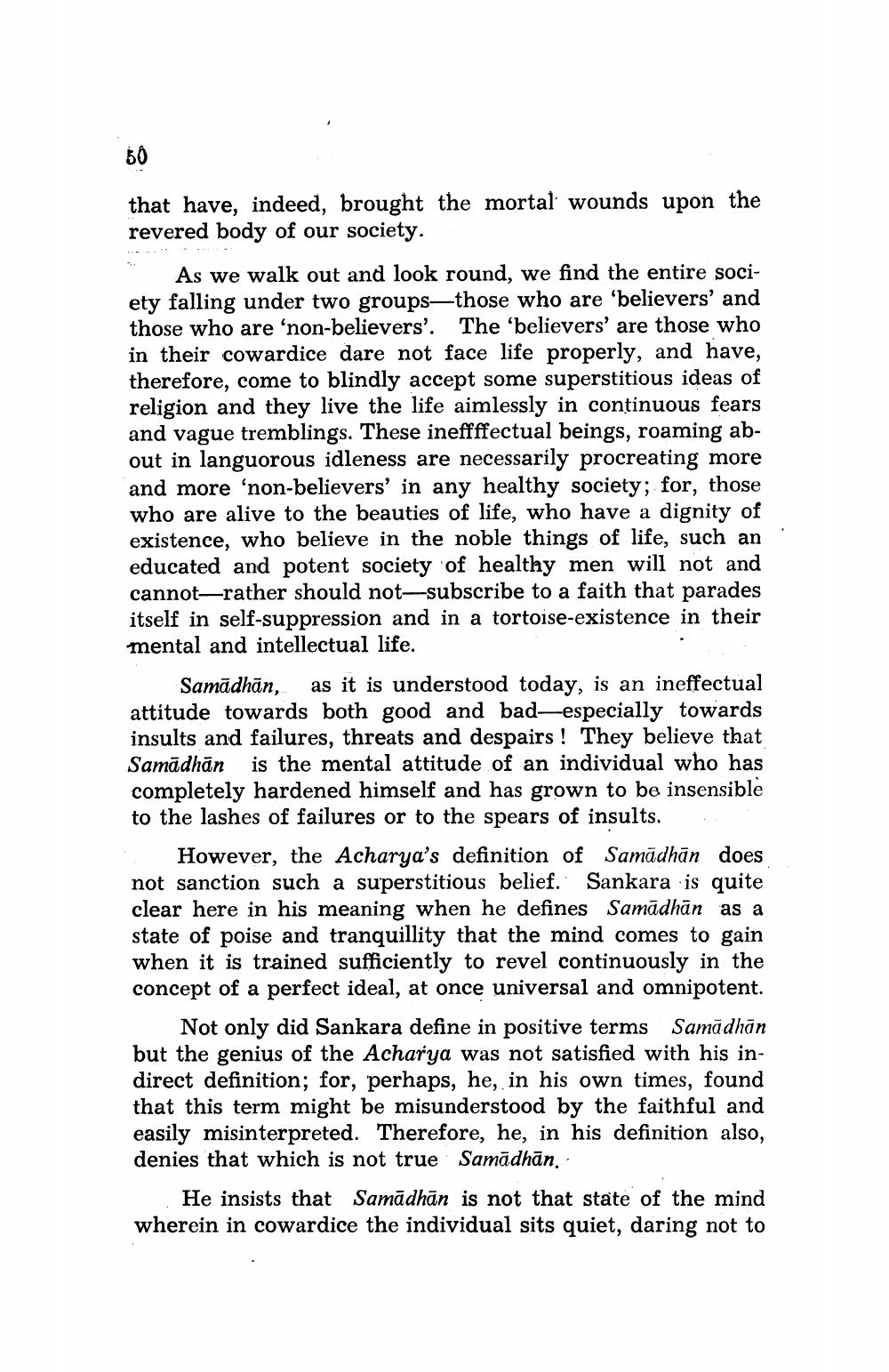________________
50
that have, indeed, brought the mortal wounds upon the revered body of our society.
As we walk out and look round, we find the entire society falling under two groups—those who are 'believers' and those who are 'non-believers'. The 'believers' are those who in their cowardice dare not face life properly, and have, therefore, come to blindly accept some superstitious ideas of religion and they live the life aimlessly in continuous fears and vague tremblings. These ineffffectual beings, roaming about in languorous idleness are necessarily procreating more and more ‘non-believers' in any healthy society; for, those who are alive to the beauties of life, who have a dignity of existence, who believe in the noble things of life, such an educated and potent society of healthy men will not and cannot_rather should not-subscribe to a faith that parades itself in self-suppression and in a tortoise-existence in their mental and intellectual life.
Samādhān, as it is understood today, is an ineffectual attitude towards both good and bad-especially towards insults and failures, threats and despairs ! They believe that Samādhān is the mental attitude of an individual who has completely hardened himself and has grown to be insensible to the lashes of failures or to the spears of insults.
However, the Acharya's definition of Samādhān does not sanction such a superstitious belief. Sankara is quite clear here in his meaning when he defines Samādhān as a state of poise and tranquillity that the mind comes to gain when it is trained sufficiently to revel continuously in the concept of a perfect ideal, at once universal and omnipotent.
Not only did Sankara define in positive terms Samādhān but the genius of the Acharya was not satisfied with his indirect definition; for, perhaps, he, in his own times, found that this term might be misunderstood by the faithful and easily misinterpreted. Therefore, he, in his definition also, denies that which is not true Samādhān.
He insists that Samādhān is not that state of the mind wherein in cowardice the individual sits quiet, daring not to




